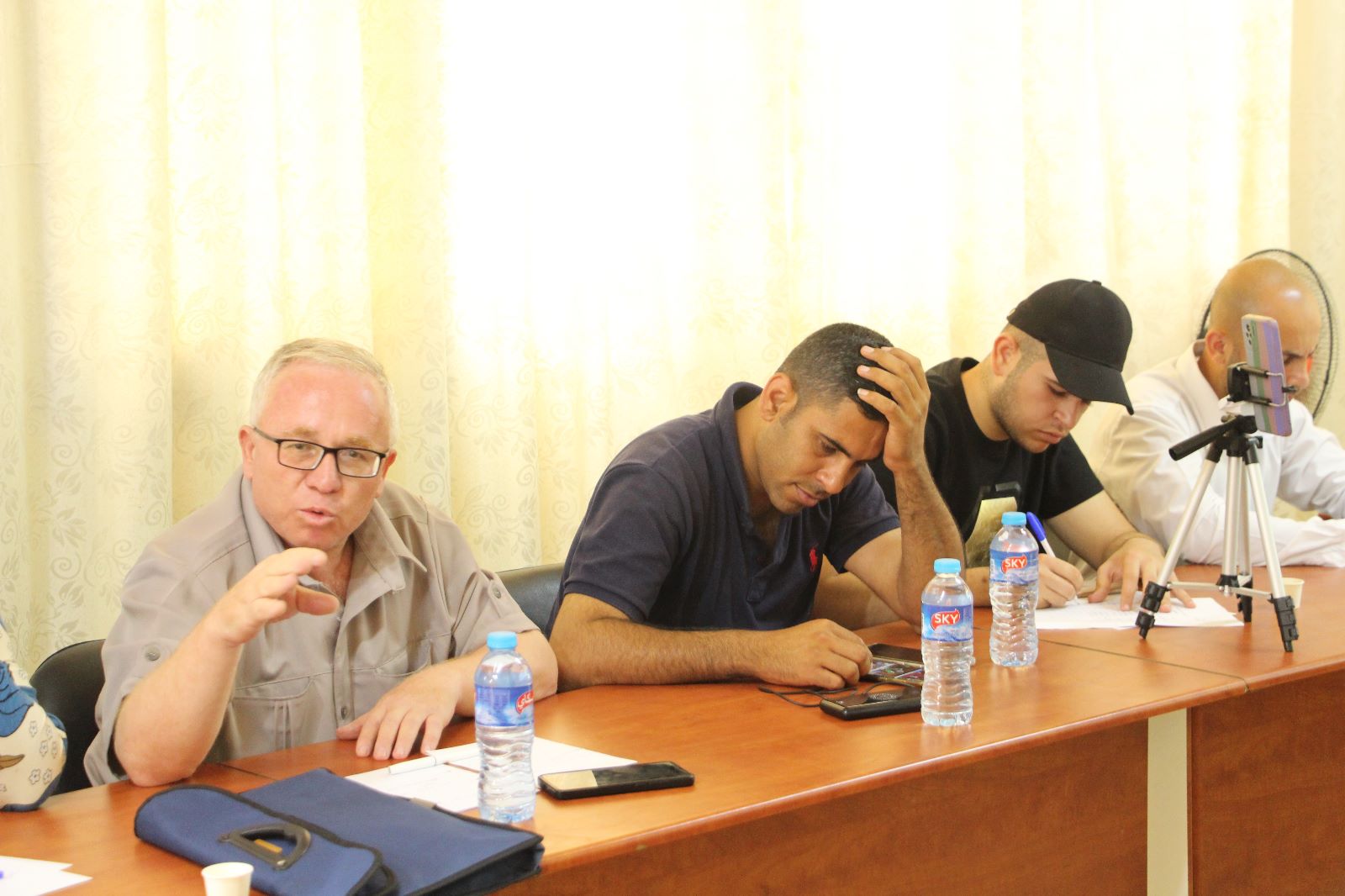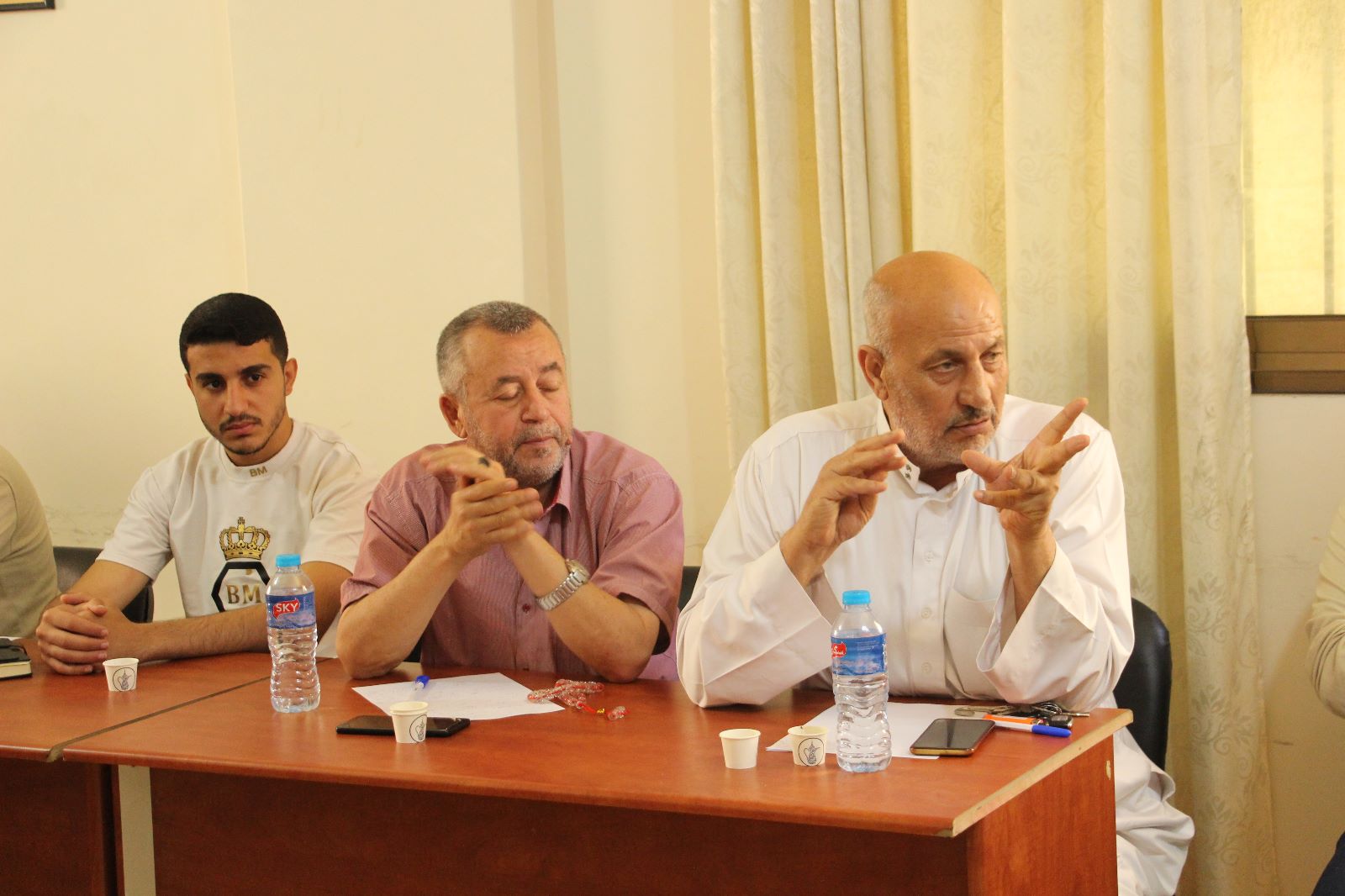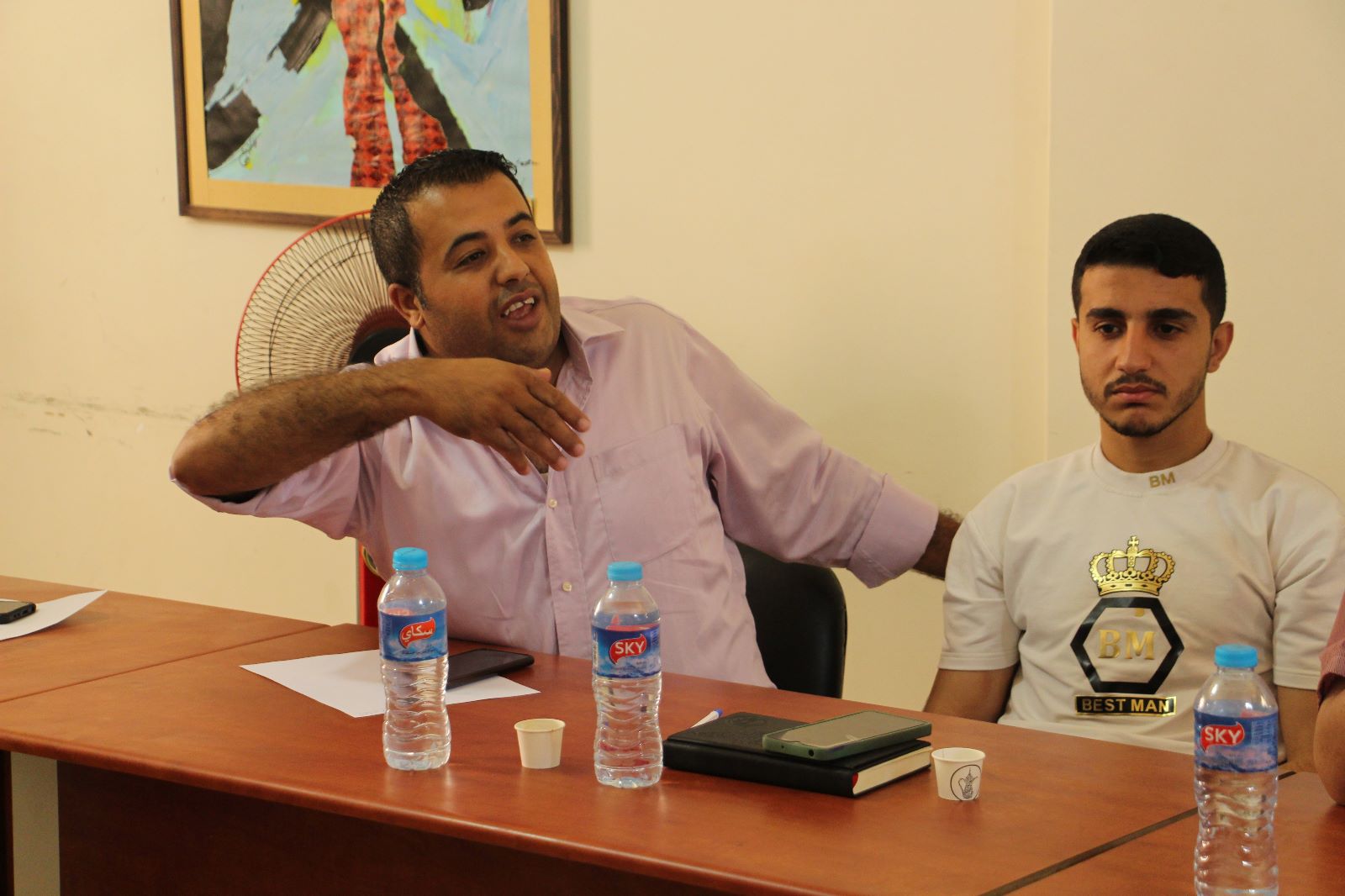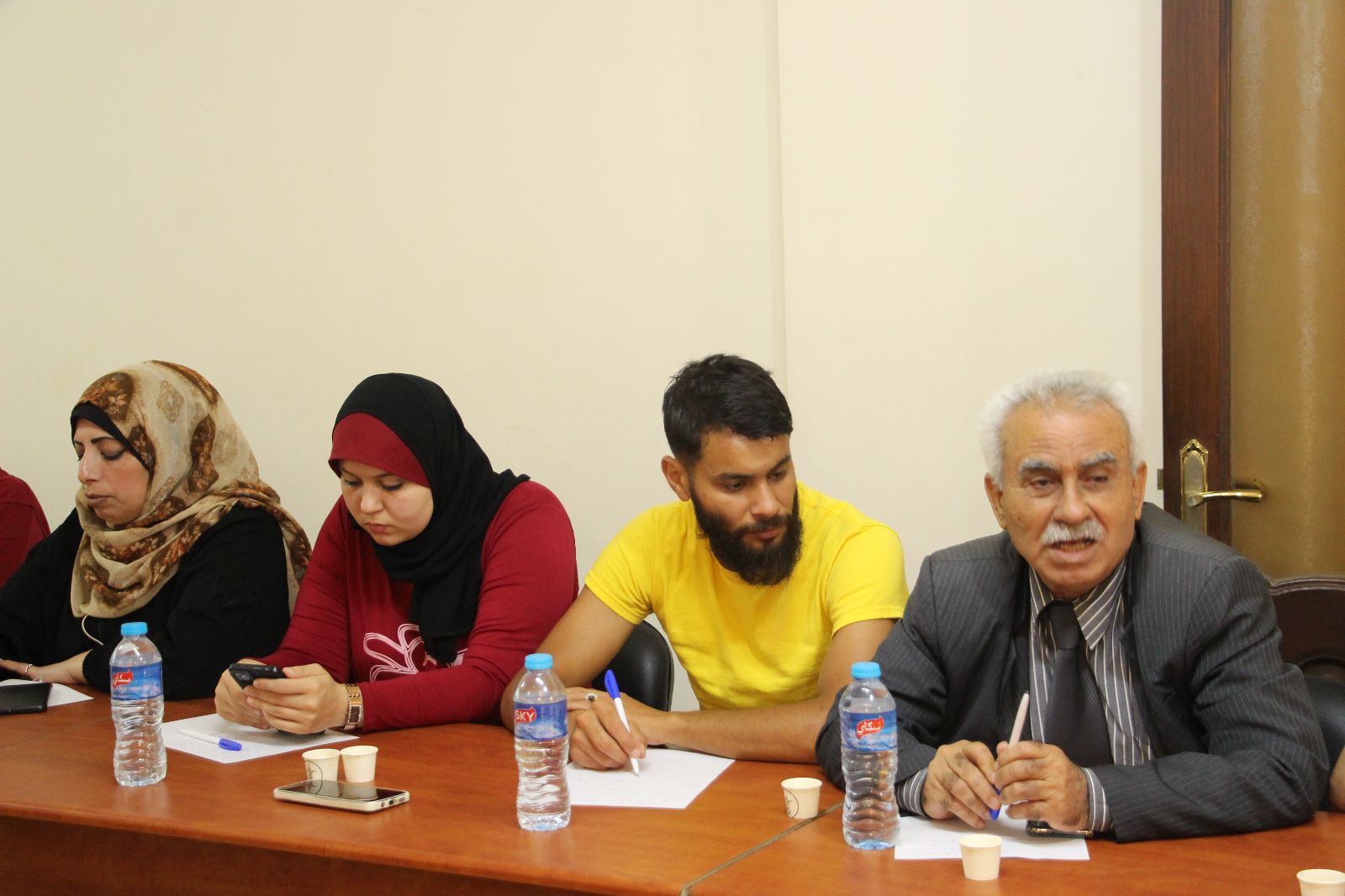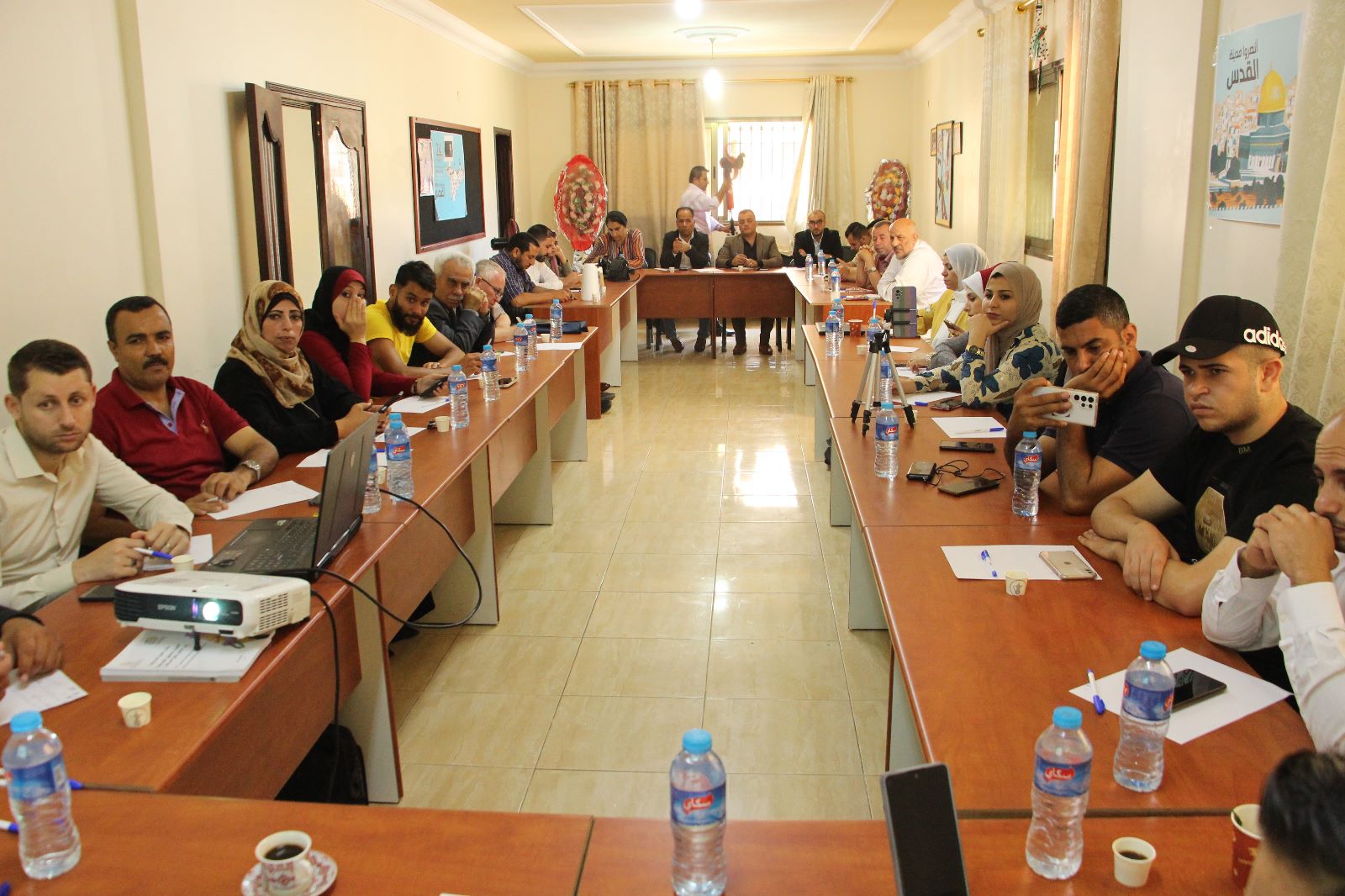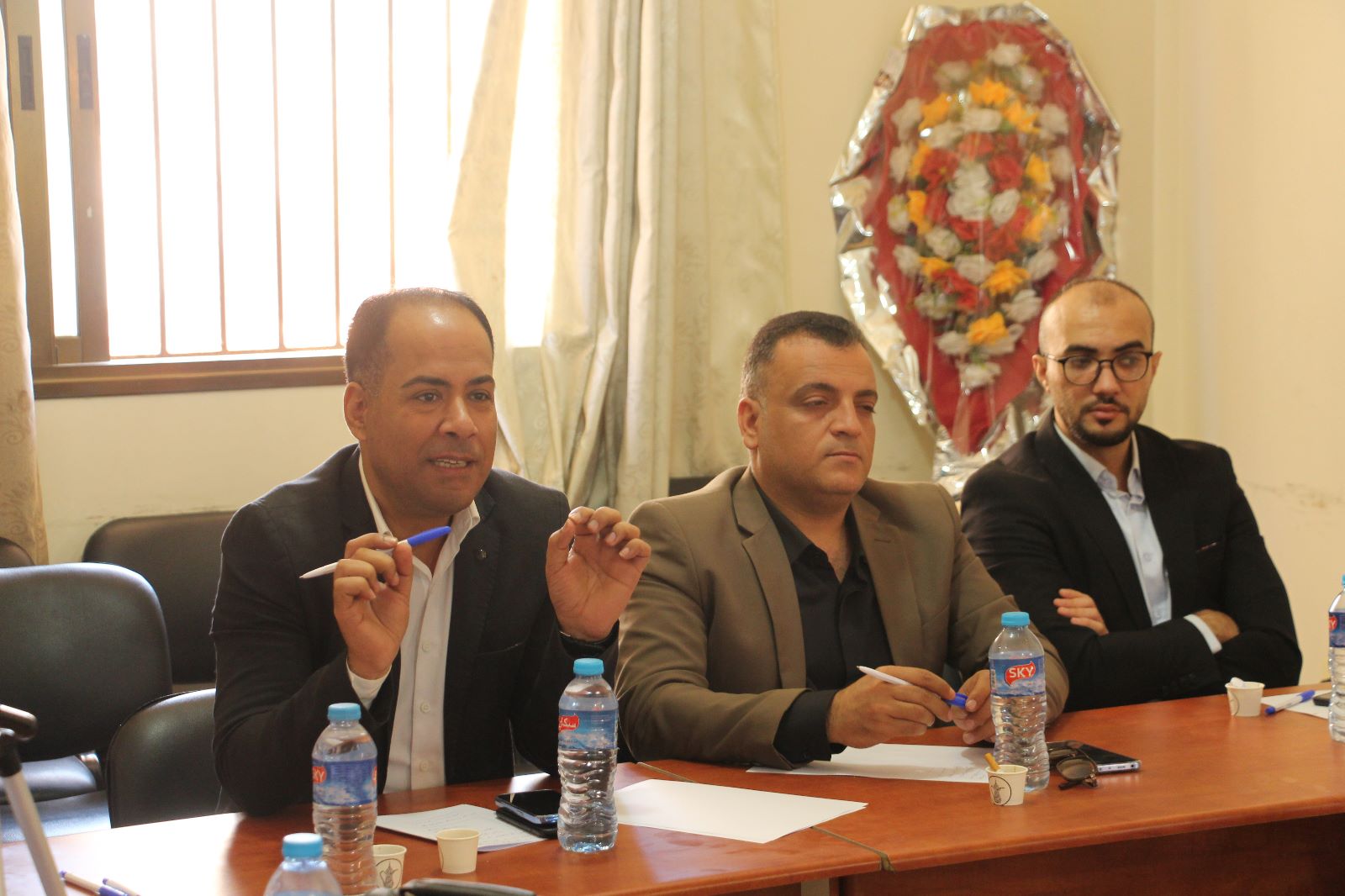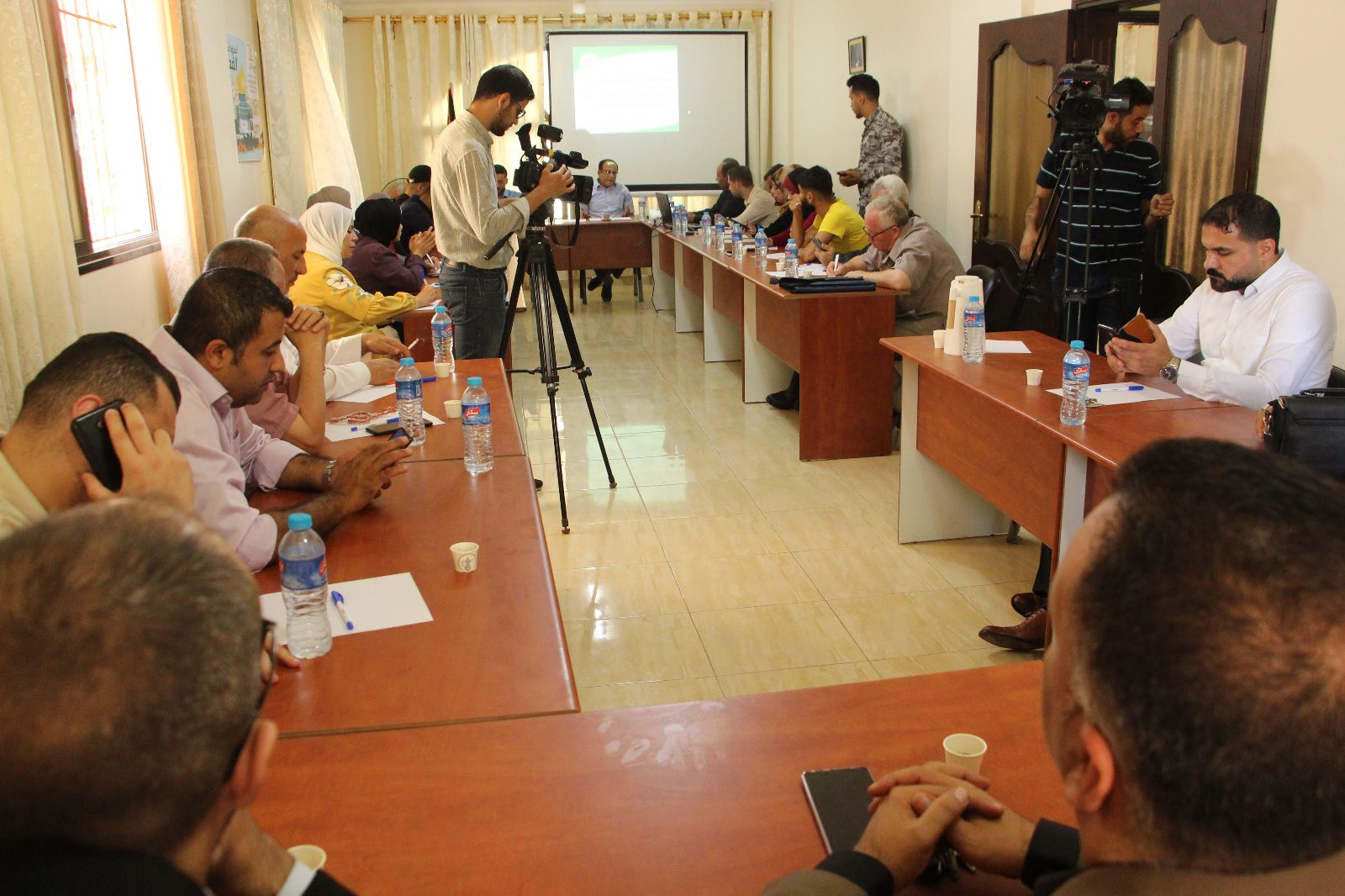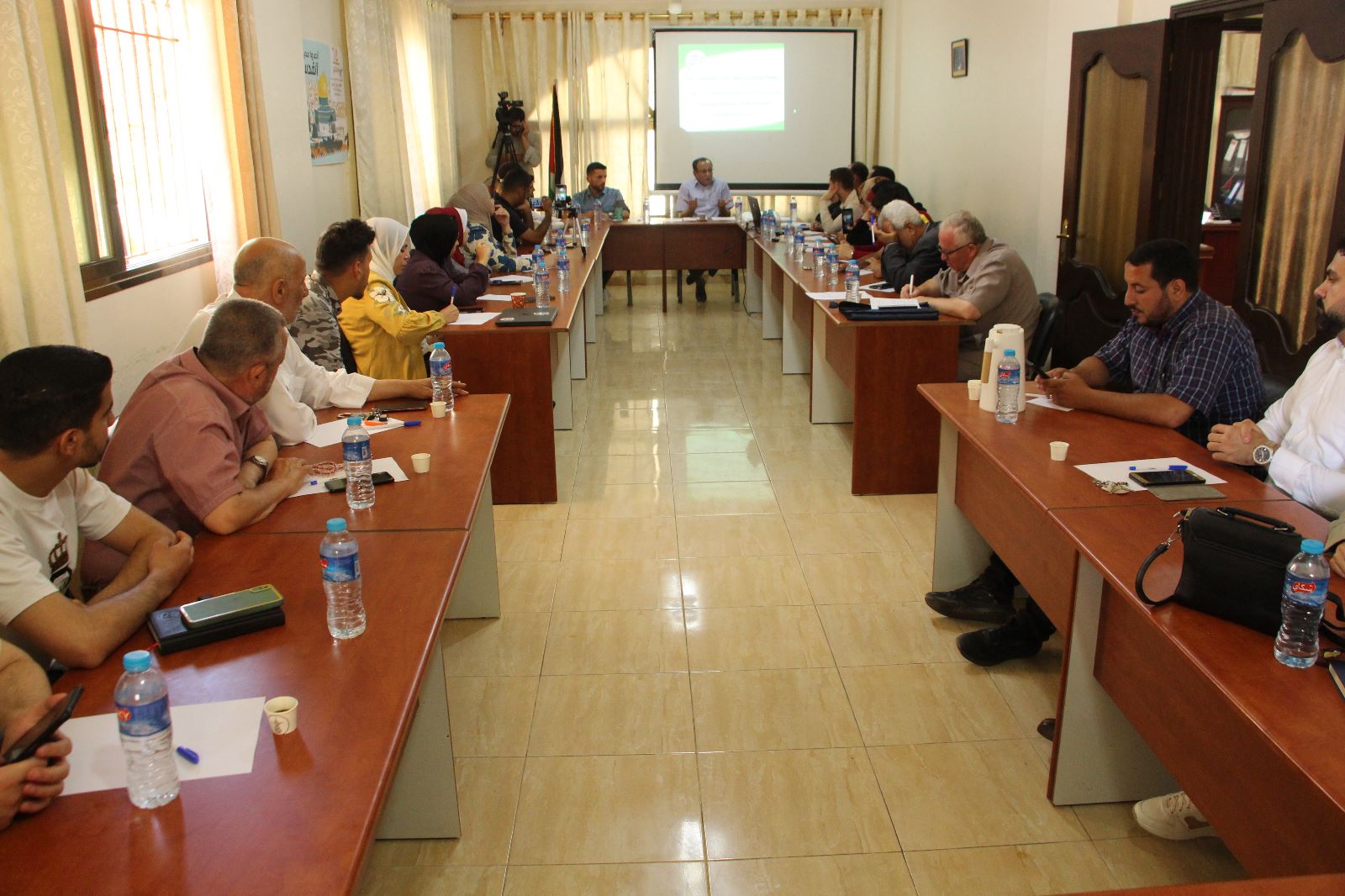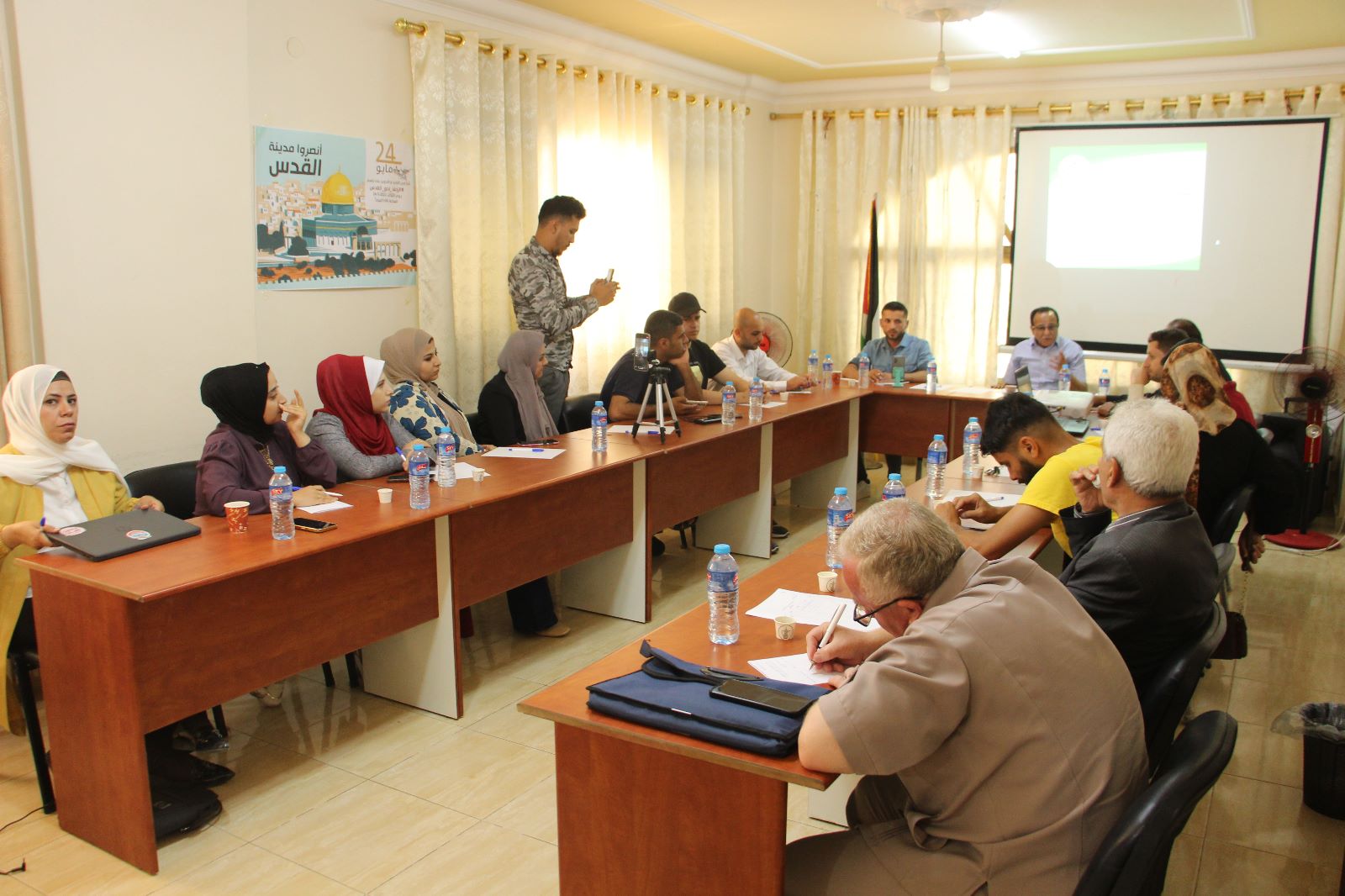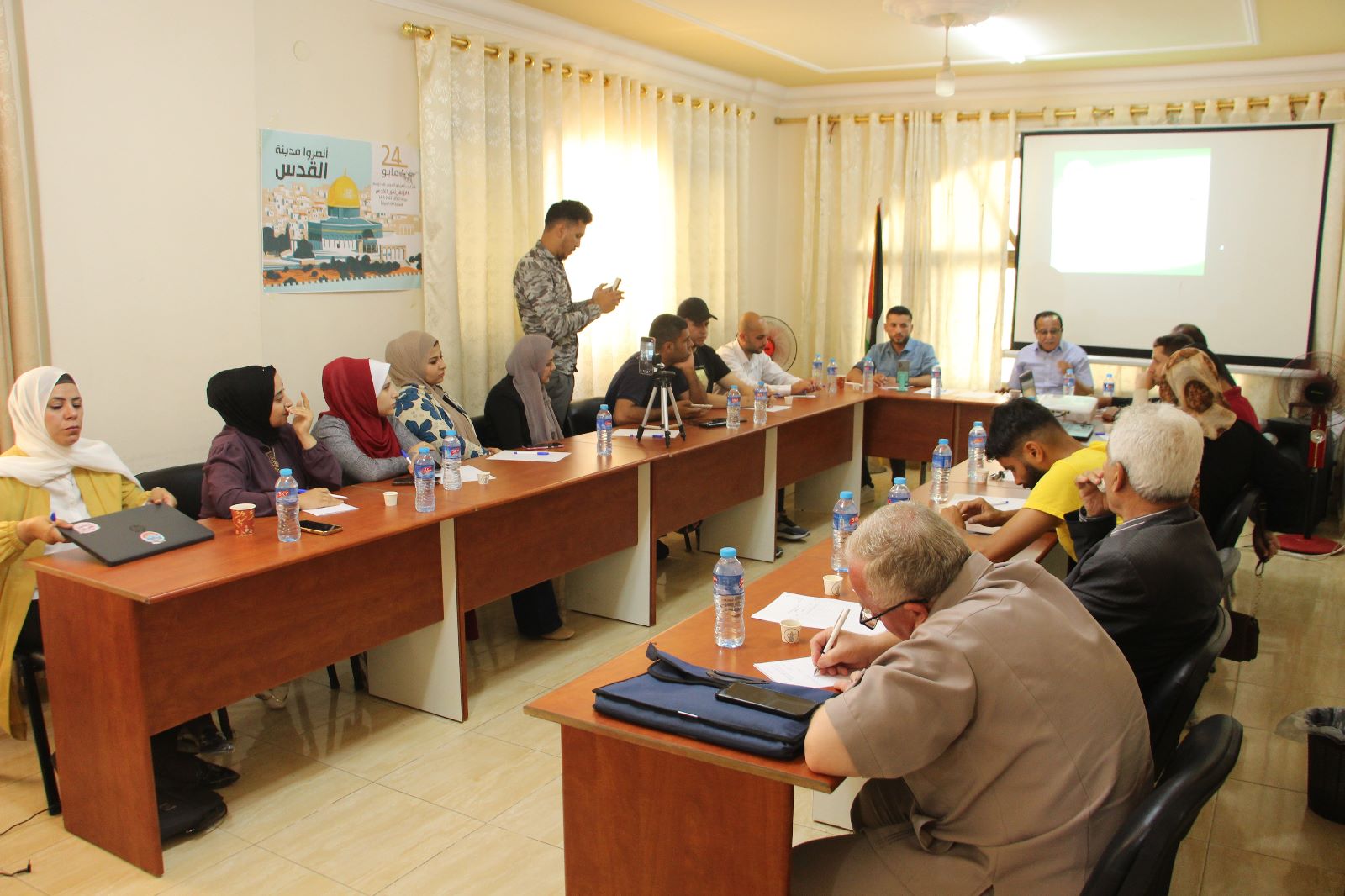Reference number: 51/2023
Date: June 18, 2023
Native language: Arabic
Press release
Within the framework of the democratic transition program.
The International Commission “Hashd” hosts a round table discussion on “Challenges and Prospects for Reconciliation and Elections.”
The International Commission to Support Palestinian Rights “Hashd” organized a round table meeting on “Challenges and Prospects for Reconciliation and Elections” today, Sunday, in the presence of representatives of national and Islamic parties, civil organizations, and youth activists, as part of the Democratic Transition Program.
Muhammad Islim, a lawyer and researcher, opened the meeting by welcoming the attendees and emphasizing that this meeting aims to support the achievement of Palestinian reconciliation, which has become the dream of all Palestinians, as well as the mechanism of standing together as one to support reconciliation.
Participants discussed democracy, previous attempts at reconciliation, and the reasons for the inability to resolve the conflict and organize general elections.
The participants pointed to the waves of democracy that swept the world, pointing out that in each wave, some nations succeeded while others failed, implying that democracy is not a planned procedure that ends in certain results, but rather a battle that continues to this day.
Participants discussed a variety of issues, including the fact that the Legislative Council elections in 2006 caused a psychological crisis among Palestinians, and they began to treat any change as a problem or internal fighting, questioning whether it is a solution to its procedure and the problem has been created, and whether it can be treated.
Some participants pointed out some discrepancies, such as the fact that we are not a state, that we are in a stage of national liberation, and that elections cannot be held under the occupation, while others were mistaken in their belief that in 1976 municipal elections were held without the approval of the occupation, and wondered whether holding elections required liberation.
The presence of the middle class, according to the speakers, is critical for any accomplishment process. There was a debate on whether we have a middle class capable of leading our society to democracy, as well as whether we are a people or a nation, with the Palestinian people emphasizing that they possess the characteristics of a nation.
As you question the participants about the existence of civil society, you will emphasize the importance of civil society institutions as an extraordinary lever in political life, pointing out that civil society has been reduced to a group of civil institutions with the absence of the role of unions and popular federations, who will defend doctors, lawyers, and teachers.
Participants pointed out that we have erroneous beliefs about democracy and its chances of success, even inside our own country. These distortions that were implanted in our subconscious minds are programmed distortions, which implies that the scales have shifted, and a big number of individuals have vanished off the political map.
While the participants presented their perspectives on the challenges and prospects of reconciliation and elections, they came up with recommendations, most notably that Palestinian reconciliation is a strategic choice and a national demand as a prelude to ending the Israeli occupation and restoring consideration to the Palestinian cause, emphasizing the importance of capitalizing on Egyptian and Algerian efforts and mobilizing popular pressure to restore unitary statehood.
They emphasized the importance of reactivating and strengthening the institutions of the Palestine Liberation Organization to ensure the re-strengthening of the Palestinian political system, conducting a comprehensive political review of Palestinian political action over the past 24 years, and developing a new Palestinian strategy to increase the chances of reconciliation and agreement on an inclusive national project and a national democratic system that leads to a breakthrough in the processes of establishing the Palestinian political system, halting the downward spiral, mobilizing Palestinian energies, and instilling hope in the hearts of youth and citizens.
They highlighted the importance of emphasizing the Palestinian people’s rights to return, self-determination, the establishment of an independent Palestinian state with Jerusalem as its capital, and the right to struggle against occupation as a right guaranteed in accordance with international human rights conventions as a national program that ensures the internationalization of the conflict and the use of all international and regional variables in favor of conciliation. Noting the significance of preserving human rights by upholding the principles of separation of powers, enhancing judicial independence, and avoiding the perils of political division, which contributed to the decline of the status of the Palestinian cause, and led to damage to the institutions of the political system and its ability to perform its political, economic and social roles.
They unanimously agreed on the importance of agreeing to hold presidential, legislative, local, student, trade union, and popular union elections, and they urged the parties and forces to work together to address the issues that arose as a result of the division, to restore the rights of the wounded, prisoners, and martyrs’ families, to end forced retirement, and to protect the rights of young people.
They additionally focused on the obstacles to holding elections and ending the division, such as internal challenges, the crisis of democracy in the political system and interest groups, the lack of historical reconciliation between political forces, Israeli interventions, and regional and international variables that impede progress toward reconciliation, as well as the crisis of confidence and the lack of agreement on a national program and a comprehensive plan. and the lack of resolutions to any pending concerns.
They also urged the Palestinian leadership and political forces to prioritize the supreme interests of the Palestinian people and citizens by overcoming all obstacles to reconciliation efforts until reconciliation is completed, which will necghts essitate the concerted efforts of all national and popular efforts to ensure progress toward rebuilding all institutions of the political system. It is necessary to improve the rule of law and establish citizen equality. Rejecting exclusion, marginalization, and prejudice, as well as respecting and protecting human rights.
Finished.
The International Commission to Support Palestinian Rights (Hashd)



